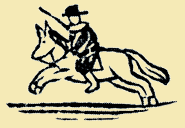- Yes!
- Group Sculptures
- Mirrors
- Sculpture Gallery
- Presents
- Have You Seen My Kitty?
- Magic Hat
- Hotseat, or, The Press Conference
- “I’ll follow you!”: A choral speech
- Three Worlds
- Two-character exchanges
- “Now I am alone”: The soliloquy
- Group voice: Sharing a character
- Showdown: Oberon vs. Titania
- Planning the Project: What do you want your students to achieve?
- Planning the Project: Making room for Shakespeare
- Planning the Project: The Final Performance
- A sample sequence
- Laying the foundation, establishing some rituals
- Preparing for the journey: A checklist
- We shall not cease from exploration

Often, a few simple rituals and traditions can be established at the beginning and returned to over and over. It’s the same sort of thing you do when you establish routines in the first week of school. Here are some examples:
Circle!: The first is gathering in a circle, without talking or shoving or scooting around to be next to friends. Students should be able to do a standing one and a sitting one quietly and crisply. It’s amazing how long it can take kids to get this one down! Sometimes the entire second or third session might be spent doing this, practicing it, so that it can be done in 15 seconds on one simple command: “Circle!”
Audience!: Another is the importance of being an audience, and of applauding scenes together, with everyone joining in. No one can drop out. All eyes must be on the performers at all times.
Comments: A third is about constructive criticism. Everything is a suggestion, an idea to try. Some students, offered the chance to comment on a scene, will indulge in criticism that makes them feel superior. We redirect that as quickly as possible and return the focus to the ensemble.
Attention: A fourth is a call-and-response to get everyone’s immediate attention. Even if you have one already in use in your classroom, it’s fun and energizing to create a new one for your Shakespeare work – as if you were the director of an acting company. (You have a new role, too!) One of our favorites is this one, taken from the opening of a scene from Midsummer:
“Are we all met?”
“Pat, pat!”
(Which means, “Yes, yes, we’re all set!”)
Group singing: Last but certainly not least, this is a vital part of the Shakespeare at Winedale tradition. Over the years, various classes have developed different traditions involving singing; one that has stuck is the ritual of singing vigorously before each meal out in front of the Winedale dorm – “singing for your supper.” The groups always sing in a circle. A group that can sing together can do almost anything together. Ask the students to teach each other funny camp songs. Develop some class favorites and sing them on the way outside for recess. Eventually you can learn some Shakespeare songs, such as “Lover and His Lass.” If you come out to Winedale, we’ll teach it to you!
“Pat, pat!”
(Which means, “Yes, yes, we’re all set!”)
